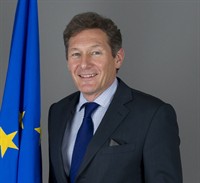Outdated approaches to European defense capabilities. An EESC report
(BRUSSELS2) It is rather rare for the European Economic and Social Committee (EESC) to consider defense issues. This was however the case this week with a report voted in plenary on Thursday (July 12) devoted to the need to set up a European defense industry. Report which somehow echoes the concerns expressed also by the chairman of the EU military committee, Hakan Syren (read: We must cooperate more, explains General Syren who denounces the reluctance of States). Written by Joost van Iersel - a former Dutch MP (CDA - Christian Democrat), president of the Chamber of Commerce in The Hague - this report denounces the "outdated" approaches of the Member States and the certain risk of a weakening of the position European.
An outdated approach: European fragmentation and overcapacity
THE ESEC believes that more than ever the situation is pressing, "the dominant position of the western world is currently contested both economically and politically. at a time when the defense budgets of the emerging BRIC countries (Brazil, Russia, India, China) and the United States continue to increase, the European budget is suffering from budgetary restrictions. These national economic pressures should be answered by better coordination at European level, otherwise fierce competition is to be expected both in terms of products and prices. "Des outdated approaches visibly lead to increased fragmentation, disparities, overcapacity and a lack of interoperability in European defense capabilities».
Contradiction between national sovereignty and sharing
Certainly recognizes the institution, " there is a contradiction between the philosophy of national sovereignty, on the one hand, and the financial, technological, economic and social needs, on the other. And “the external pressures are apparently not yet sufficient”. But stay wait-and-see ” on this issue would only “ complicate the ascent" at the top of the global peloton. Declines in investment will "reverberate on a generation of researchers and qualified employees" and it will be "a know-how which will vanish.” The social aspect of the report therefore highlights the importance of the 600.000 direct skilled workers in the sector and its 2 million indirect jobs, in structures which are under increasingly strong economic pressure and for which it is necessary to avoid flight to third countries.
Research and development, the spearhead of a revival
The Economic and Social Committee also emphasizes the importance of Research and Development, a sector particularly sensitive to budget cuts, while already the R&D budget in the EU barely reaches a fifth of the US R&D budget. " The Europeans' persistent desire to remain dependent on the Americans for the supply of defense equipment instead of buying in Europe" is criticized. If today's good results are only a response to investments made 25 years ago, this reduction in commitments is all the more significant as it is accompanied by identical or higher operational costs (Libya, Afghanistan, piracy).
Solutions to overcome the impasse: dual use.
In addition to better organization at European level, one of the remedies proposed is to promote 'dual-use' technology as much as possible, because for the members of the EESC 'the new-generation weaponry should never be the sole responsibility of industry". A good example of this is to be found in the electronics sector. The European Defense Technological Industrial Base (EDITB) could play its role in stimulating dual use since "it allows funding from outside the defense communities”. Better R&D funding will also require better “ identification of European industrial capacities (to) promote viable European productions”. Even if it is still too early to draw conclusions, the ESEC sees good instrumental potential in the 2009 directive on defense procurement. On the institutional level, the report seeks to define European strategic interests within the framework of the CFSP, and therefore to share national and European competences by putting more emphasis on the role of the European Defense Agency or the European Commission, in particular in the Growth Strategy framework Europe 2020.
Report within B2 docs

